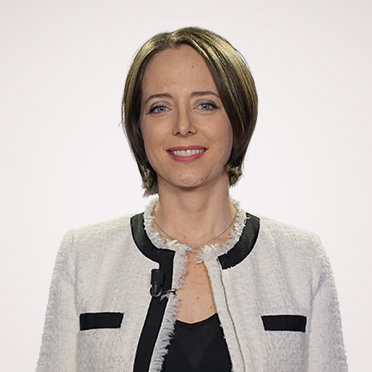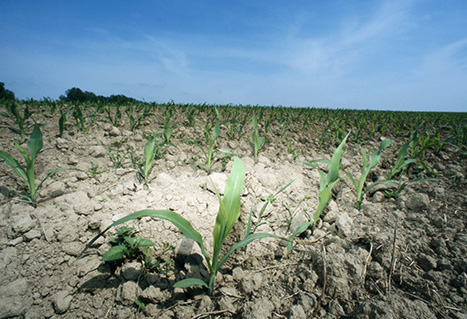


Claire le Gall-Robinson
Group General secretary
« Protecting people and assets is anchored in our purpose. 2017 was a milestone for our sustainability-led initiatives, including signing the French Business Climate Pledge, creating coal industry guidelines, and launching our carbon offsetting program. We’re proud of these achievements, and we look forward to building upon them. »
As a reinsurer, SCOR protects people and assets, safeguarding the resilience of economies and societies impacted by the many shocks to which they are increasingly exposed. Helping our fellow citizens to alleviate the negative impact of risks when they occur is embedded in our DNA.
SCOR is a longstanding supporter of sustainability-led initiatives, such as the United Nations Global Compact and the Principles for Sustainable Insurance. Upholding Sustainable Development as one of its five core values, SCOR acknowledges the high relevance to its business of the Sustainable Development Goals (SDGs) set in 2015 by the United-Nations Agenda 2030.
At SCOR, we believe that stakeholder value is every bit as important as shareholder value. We care about all of our stakeholders, and about society as a whole. Creating shared value and producing security are key elements of how we do business. The reinsurance industry in particular has a crucial role to play in economic and societal development. Through its fundamental function of mutualizing risk and its capacity to absorb negative shocks, reinsurance helps, ex-ante, to stimulate innovation, investment and development. Ex-post, reinsurance is there to help victims financially, to ensure that they have a replacement income, to help them to rebuild their homes, and to regain their autonomy.
We constantly strive to create this value and to contribute to the common good, by directing our efforts into 3 areas :
 Nurturing human capital
Nurturing human capitaland diversity

SCOR’s human resources strategy is based on a rigorous, rational approach designed to enhance the technical skills, leadership and performance of all those who contribute to its development.
An industry leader in terms of employee stock ownership, SCOR seeks to align its interests with those of its shareholders. In 2017, 3.5% of SCOR’s capital was held by its employees.
Nurturing our talent is also a top priority. To do this, we have developed inspiring training programs in a wide range of fields. The average number of training hours per employee in 2017 was 20, with 81% of the Group’s staff receiving training.
We also promote gender diversity across our organization, notably through our SCOR International Gender Network (SIGN), which celebrated its first anniversary in 2017.
 Addressing climate
Addressing climatechange-related risks

Our Climate policy clearly demonstrates that, as an organization, we want to play our part in mitigating climate change and adapting to its consequences.
We are accompanying the transition to a low-carbon economy through our underwriting and investment activities. Moreover, we firmly believe that reinsurance has a role to play in climate change adaptation, through the design of reinsurance solutions tailored to extreme weather events and through the harnessing of modeling capabilities on both sides of the balance sheet.
In 2017, we confirmed our commitment to invest an additional EUR 500 million in low carbon assets, whilst enforcing sectoral guidelines in both our underwriting and investment activities.
We actively manage our global carbon footprint, having reduced our global carbon intensity by 11% at the end of 2017 (baseline: 2014). Following an enthusiastic global vote by staff, we have also committed to a pilot carbon offset program.
 Supporting the
Supporting theknowledge society

In 2017, we supported new research projects both directly and through the SCOR Corporate Foundation. As an illustration, SCOR Global Life’s R&D teams contributed to the Human Mortality Database (HMD) project, which seeks to provide open access to detailed population and mortality data currently collected from 39 countries worldwide. HMD is used by researchers, demographers, policy analysts, students, actuaries in the insurance industry, and others interested in the history of human longevity throughout the world.
The Group or its Foundation “as appropriate” also contribute to the promotion of actuarial science by helping to fund actuarial awards in cooperation with local actuarial institutes both in Europe (Germany, Spain, Portugal, France, Italy, the UK, Switzerland and Sweden) and Asia (Singapore). In addition to the actuarial awards, since 2015 SCOR has also held an annual actuarial science symposium in Paris, in conjunction with the French Institute of Actuaries. The themes of the past three symposiums have been “Will Artificial Intelligence revolutionize actuarial science?” (December 2017), “Scientific laws and mathematical models: from physics to actuarial science” (December 2016) and “Actuarial and Data Science” (November 2015).
SCOR also owns Humensis, a leading editor and publisher of pedagogical resources and scientific literature. This investment bears witness to our longstanding commitment to scientific research and literacy.

SWISS Climate Foundation
SCOR’s support for the Swiss Climate Foundation is another demonstration of the Group’s efforts in terms of carbon offsetting, sustainable development and corporate social responsibility.
As a non-profit organization, the Swiss Climate Foundation’s aim is to reduce greenhouse gas emissions and further develop the energy efficiency of Switzerland and Liechtenstein. The Foundation targets three types of measures: federal government agreements to increase energy efficiency, result-driven projects that aim to reduce CO2 emissions and promote energy efficiency, and innovative, climate-friendly products and solutions.
Since 2009, the Foundation has supported over 1,000 projects and invested over CHF12 million in climate protection. It has also avoided more than 400,000 tons of direct CO2 emissions by funding climate-friendly projects.
Energy-efficiency projects supported by the Swiss Climate Foundation include biomass steam generation, heat generation from wood furnaces, and thermal screens.



Voluntary Carbon
Offset Program
In December 2017, SCOR launched a voluntary carbon offset program, which focuses on forest preservation and protection. The program has been carried out with the help of our partner South Pole, a leading provider of sustainability solutions and services.
All SCOR employees were invited to choose between two forest protection projects: one in Zimbabwe and one in Peru. As well as advancing the preservation of forests and the fight against deforestation, both projects also contribute to the development of local communities.
The first project protected 785,000 hectares of forest and wildlife on the southern shores of Zimbabwe’s Lake Kariba, by teaching conservation farming and by taking action against forest fires. It also created job opportunities, such as beekeeping and ecotourism, which benefit the entire community. Beyond protecting the environment, the project also improves everyday life in the region, through better health facilities, development of local infrastructure, and school subsidies for the poorest quartile of the population.
The second project supported an area located in the Upper Amazon basin of Peru. This is a genuinely biodiverse hotspot, where deforestation by ranchers and farmers is endangering wildlife and plant species. The project managed 300,000 hectares of forest by producing high-quality Brazil nuts, giving smallholder concessionaires access to international markets and forest protection practices. Protecting the forest allows to preserve the region’s biodiversity. Landowners benefit from better incomes, and the investment in the Brazil nut industry generates new employment opportunities for locals, while ensuring that sustainable harvesting practices are carried out by future generations.
Following a vote that exceeded all expectations in terms of participation, SCOR employees casted a 50/50 vote for the two projects. The Group therefore decided to split its support equally between them.